News
Lagos state government converts general hospital to eye centre to enhance Nigerian eye care
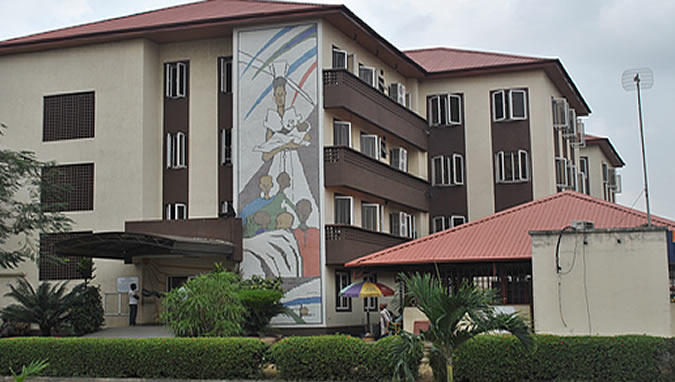
The Lagos State Commissioner for Health, Prof. Akin Abayomi, says the state government will designate one of its general hospitals as a centre for ophthalmic speciality to improve care for patients with eye conditions.
Abayomi said this during the 4th Annual General Meeting and Scientific Conference of the Africa Retina Society on Thursday in Lagos.
The News Agency of Nigeria (NAN) reports that the event was themed, “Upscaling Retinal Services in a Resource-Constrained Economy.”
Abayomi said the centre would provide world-class diagnostic, medical, surgical and ophthalmic services in Lagos and Nigeria. He stressed that the state would prioritise eye health, noting that the state was working on developing screening capacity of all its primary healthcare facilities to detect eye diseases early.
“The conditions that affect the eyes very much reflect the conditions of the community in which you live. HIV, for example, was a major problem in South Africa, and I certainly experienced the impact of HIV on our day-to-day medicine and practice.
“Here in Nigeria, we have other things. We have hypertension, diabetes, sickle cell, and lots of trauma. These are the kinds of things that we see in our clinics here in Lagos and in Nigeria.
“We need to be able to understand how these prevailing conditions really affect us,” he said.
The commissioner further said that efforts are ongoing to promote eye screening, especially in schools, starting with the training of teachers to detect students exhibiting challenges with their vision. He added that the state would leverage social health insurance to screen, detect and treat eye diseases as patients present at health facilities.
The commissioner further said the state would strengthen public awareness and understanding of eye health, especially glaucoma and visual acuity.
Abayomi disclosed that the state through its Ministry of Health had forged a partnership with the Chagoury Group to develop a specialist eye hospital in Lagos to boost access to eye services. He acknowledged that ophthalmology was equipment-intensive, stressing that the government would pay attention to that and human resources to enable practitioners to make appropriate diagnoses, and treatments to reverse medical tourism.
Earlier, Prof. Linda Visser, Head, Division of Ophthalmology Stellenbosch University, South Africa, called on policymakers to formulate policies that would integrate eye screening into diabetes care from the primary healthcare level, noting that cases of diabetic retinopathy were on the increase among Africans.
Diabetic retinopathy (DR) is a chronic progressive disease of the retinal capillaries (small blood vessels) associated with prolonged raised blood glucose levels in people with diabetes.
Visser cited data from the International Diabetes Foundation that showed that 537 million adults aged 20 to 79 years are living with diabetes globally, a number that was predicted to reach 1.3 billion in 50 years.
“The high prevalence of type 2 diabetes continues to rise worldwide and is particularly rapid in low- and middle-income countries.
“Most of these countries have limited availability and affordability of healthcare services for screening and treating diabetes-related complications, such as retinopathy, to prevent vision loss.”
According to her, all persons with diabetes are at risk of developing DR, however, those with poor blood glucose and blood pressure management and hyperlipidaemia are most at risk.
Visser, Past President, of the Vitreoretinal Society of South Africa, emphasised that early detection would lead to timely treatment of DR, which could prevent 95% of vision impairment and blindness.
Also, Dr Asiwome Seneadza, Chairman, of the Africa Retina Society, said that the theme was timely and critical as efforts are made to navigate the complexities and challenges in delivering advanced retinal care across the continent.
Seneadza said, “That’s why we are advocating for improved diabetes care and regular retinal screening made available and accessible for every individual living with diabetes,” he said.
Similarly, Prof. Bassey Fiebai, Chairman of, the Vitreo Retinal Society of Nigeria, said the meeting was critical to proffering solutions to the challenge of offering standard retina care, improving outcomes and reducing visual loss from retina-related disorders among low to medium-income countries.
Fiebai said that the government plays a critical role in providing funding, training of personnel, and provision of equipment to improve screening, detection and treatment of retinopathy disease.
The professor noted that retina specialists are few in Nigeria, placing the figure at about 100, stressing that it was inadequate to cater to the teeming population who require eye care.
“Right now in the country, we have just a little over 100 retina specialists. And we know that the population of Nigeria is about 230 million.
“So we’re looking at a situation in which one retina specialist is supposed to cater for 2.3 million people. How does anyone cope?” she queried.
NAN reports that the Annual General Meeting and Scientific Conference of the Africa Retina Society which began on June 26 to June 28, had participants from various African countries brainstorm on enhancing retinal care.
News
Fire guts LAUTECH teaching hospital
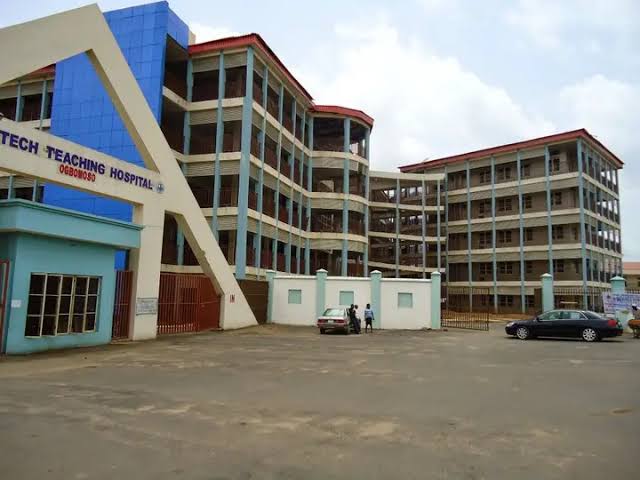
Property worth millions of naira were on Saturday destroyed at the Ladoke Akintola University Teaching Hospital in Ogbomoso, Oyo State, as a result of a fire incident.
The incident, which happened around 5 am in a paediatric consultant’s office, affected electronic gadgets, engines, books, office equipment, roofs, and others worth millions of naira.
A credible source told our correspondent that the fire incident was suspected to have started from an electric spark.
It was learnt that about 16 patients had to be quickly rushed out of the ward.
However, in a statement sent to PUNCH Online in Ibadan, the state capital, on Saturday, the Public Relations Officer of the institution, Ogunleye Omotayo, said no life was lost in the fire incident.
The statement read, “The management of the institution wishes to state that the fire incident that occurred early this morning (Saturday), as carried by some news media, was put out without any remarkable damage to the hospital.
“Noting that no human damage was recorded in the incident, the management wishes to state that Investigation is still ongoing with regard to the cause of the incident.
“At the moment, light has been restored, and work activities have resumed in the section where the fire incident took place.
“The management wishes to thank all staff, the state Fire Service, and all other well-wishers for their concerns and prompt response. The fire incident raised no cause for alarm. Everyone is advised to go about their normal daily activities without fear.”
News
Nothing wrong having a Christian as Alaafin of Oyo, says Oladigbolu
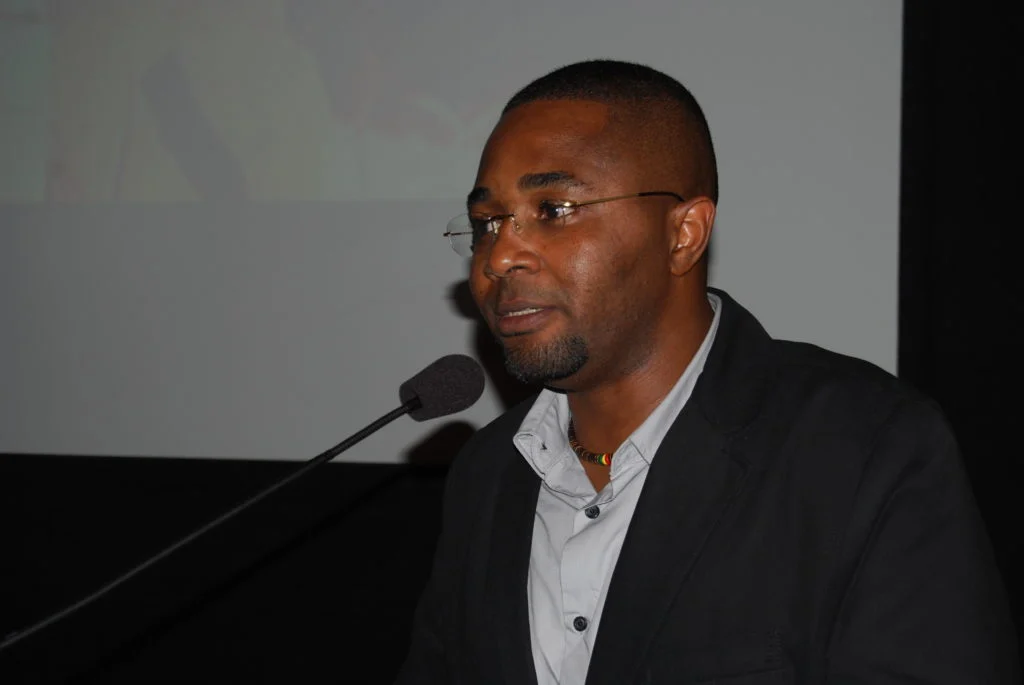
Rahman Oladigbolu, a Nigerian filmmaker, says he sees no reason why the Alaafin of Oyo cannot be a Christian.
Two years ago, Lamidi Adeyemi, Alaafin of Oyo, died at the Afe Babalola Teaching Hospital, Ado Ekiti, after battling an undisclosed illness.
He was 83 years old and had been on the throne for 52 years — the longest-reigning Nigerian monarch at the time.
Since his death, the throne has been vacant.
Speaking in an interview with Rudolf Okonkwo, Oladigbolu, a prince in the Oyo kingdom, said religion should not be a factor in the selection of the next Alaafin.
“In Oyo, where I came from, we are trying to select a new king. It has been the tradition for some decades that the Alaafin of Oyo will be a Muslim,” he said.
“Now, we have some Christians among the people vying for the position, and there are discussions about whether Oyo can have a Christian Oba. Of course, if you can have a Muslim Alaafin, I see no reason you can’t have a Christian Alaafin.
“The whole point should be to ensure that people would not be talking about religion in issues like this, but it is difficult because of the agenda of people wanting to impose their religion on others.
“So these are where all the problems still lie, and until we’re able to understand it, I don’t see how we can move forward.”
Oladigbolu said education and enlightenment are necessary to solve division caused by religion.
“It is only enlightenment that can carry people to the point where religious considerations no longer matter in societal affairs,” he said.
“When people are enlightened to the point where it doesn’t, then it won’t.
“But today, they still see each other from their religious prism because even the behavior of people that occupy positions in society gets influenced by religion.”
News
Tinubu writes senate, seeks Oluyede’s confirmation as COAS
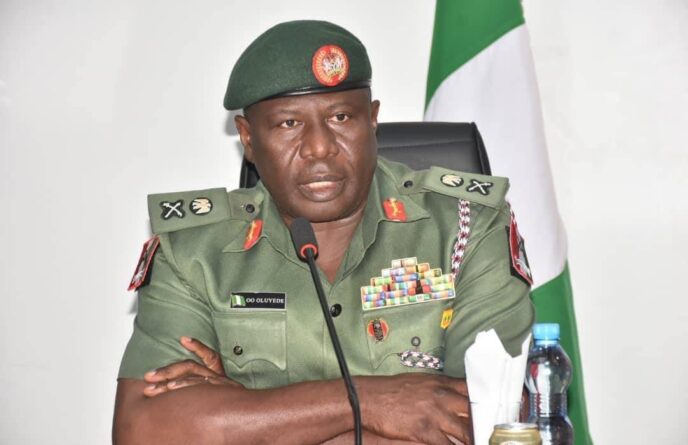
President Bola Tinubu has sent a letter to the senate seeking confirmation of Olufemi Olatubosun Oluyede’s appointment as the substantive chief of army staff (COAS).
Bayo Onanuga, the presidential spokesperson, said Tinubu seeks Oluyede’s confirmation in accordance with the provision of section 218(2) of the 1999 Constitution as amended and section 18(1) of the Armed Forces Act.
On October 30, Tinubu appointed Oluyede as the acting COAS following the prolonged illness of the late Taoreed Lagbaja, the former army chief.
On November 5, Lagbaja died of an undisclosed illness.
Onanuga said Tinubu is “confident about the leadership qualities, professional integrity, and experience” of Oluyede for the leadership of the army.
Before his appointment, Oluyede served as the 56th commander of the infantry corps of the Nigerian Army, Kaduna.
He was commissioned a second lieutenant in 1992 and rose to the position of major general in September 2020.
Oluyede and Lagbaja were coursemates and members of the 39th regular course.
Recently, Oluyede was promoted to the rank of lieutenant-general.
He has participated in several operations, including the Economic Community of West African States Monitoring Group (ECOMOG) mission in Liberia, operation Harmony IV in Bakassi, and operation Hadin Kai in the north-east theatre of operations.
He was also the commander of the 27 task force brigade.
-
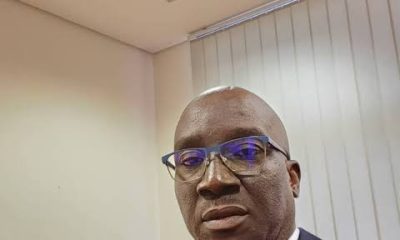
 Politics1 week ago
Politics1 week agoOkpebholo fires permanent secretaries, dissolves boards
-
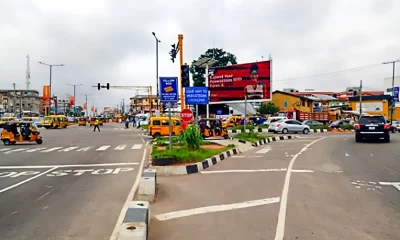
 Business5 days ago
Business5 days agoLagos state government to commence upgrade of major junctions in Ikeja axis, seeks residents’ cooperation
-

 Politics1 week ago
Politics1 week agoDSS operatives arrest man with bags of cash during Ondo guber
-
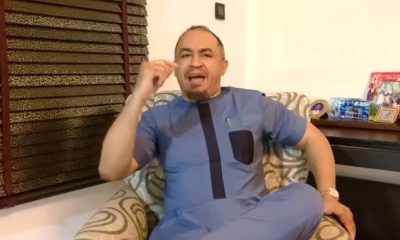
 Celebrities1 week ago
Celebrities1 week agoDaddy Freeze, Akah Nnani clash over Emmanuel Iren
-

 News7 days ago
News7 days agoNnamdi Emeh: Suspect Facing Charges In Court, Process Independent Of Police Influence
-
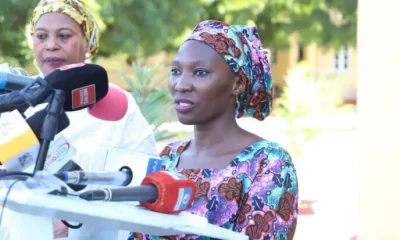
 News1 week ago
News1 week agoAlice Loksha, abducted UNICEF nurse, escapes captivity after 6 years
-

 Health1 week ago
Health1 week agoFive ways to rid your home of ants
-
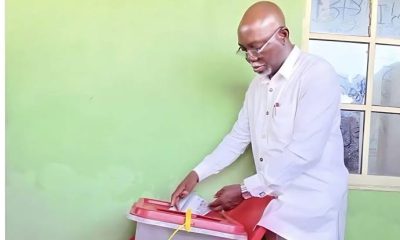
 Politics6 days ago
Politics6 days agoAiyedatiwa takes commanding lead in Ondo guber poll after winning 15 of 18 LGAs


















